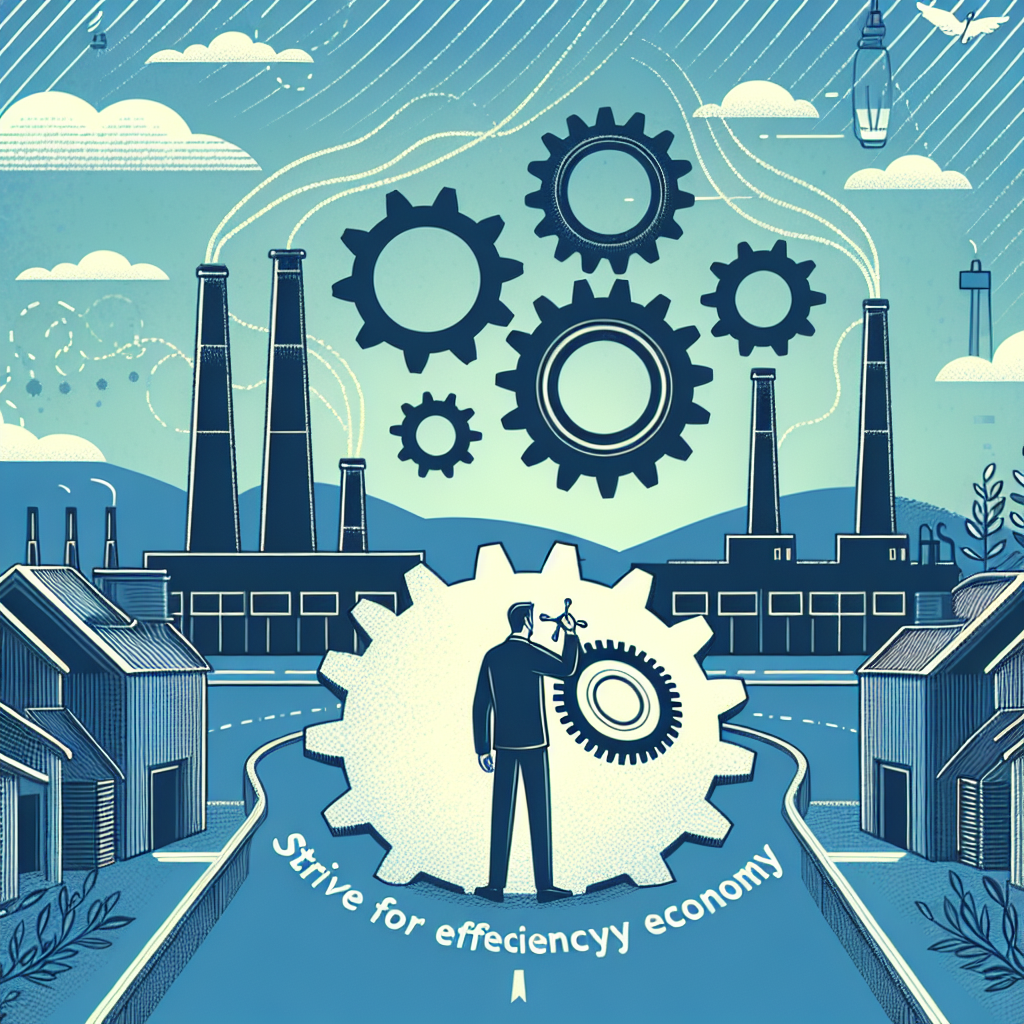Strive for Efficiency and Economy

Given that our society prioritizes efficiency and economy, you're able to read this essay. As national productivity improves, we can dedicate more time to hobbies. Otherwise, we'd be too consumed with basic survival tasks like hunting and farming.
Our culture has transitioned from agrarian communities to modern metropolises. This transformation in economic, social, and political landscapes has made us a global powerhouse in production and product quality. Our economic growth stems from collective hard work and robust financial, legal, and capital systems.
Therefore, we should aim to increase production. As leaders, we can make meetings more efficient. By evaluating which appointments are necessary and which are not, we can cut down meeting times, making our teams more efficient.
However, focusing solely on productivity is not enough; we should also consider the market's size. Being efficient in a non-lucrative field is futile. Thus, choosing the right business sector is a crucial initial step.
Productivity growth is especially important in industrialized economies. For instance, South Korean workers clock many hours but have less GDP output per hour than their French counterparts, who work fewer hours. Hence, GDP growth may only see minor boosts even if employment rates recover.
In today's digital age, smartphone distractions are a real problem. Constant phone checks take up approximately two hours per day and can triple the number of errors in tasks. This disruption in focus may negate any gains in efficiency. I personally have decided to switch off my phone to concentrate on more meaningful work, such as writing this article.
Moreover, a leader's efficiency often has a broader impact on the team. Effective communication can significantly reduce wasted time during meetings, making them more productive. Being upfront about agenda items can further streamline the process.
Committing to tasks should be a deliberate choice. Often, we agree to projects for the wrong reasons, like obligations to superiors, thereby sacrificing productivity. Streamlining commitments can lead to a more efficient life.
Learning is another area where strategy matters. Studying without purpose can lead to knowledge loss, making the process unproductive. Measuring learning by its applicability in solving new problems is a more effective metric.
In summary, the ultimate goal of improving efficiency is to produce meaningful results. By focusing on these aspects, we can strive for both efficiency and economy.